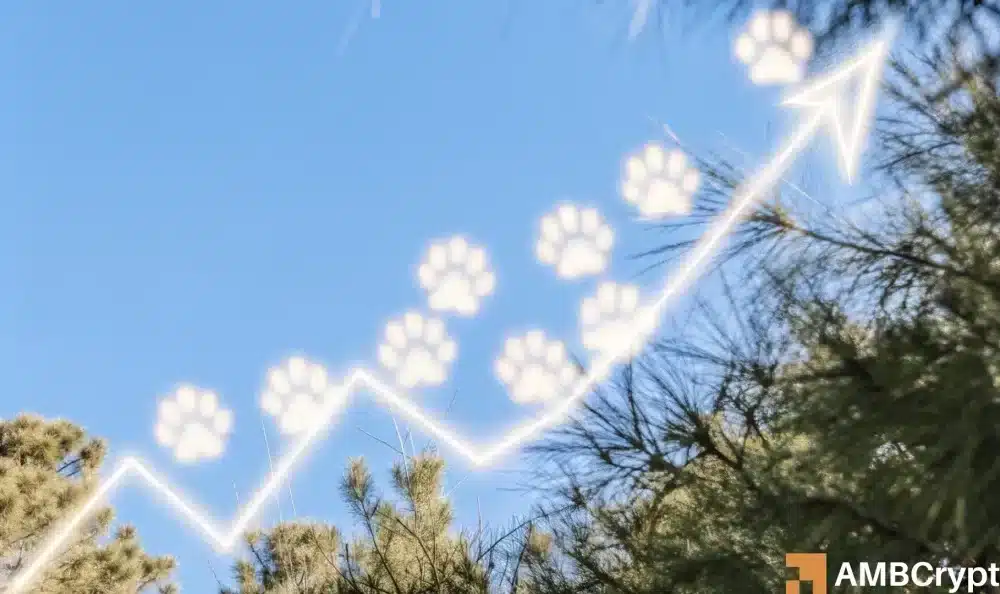
Christopher Lee for Rolling Stone
Stephen Findeisen, better known as the YouTube star Coffeezilla, is sitting in what appears to be a cyberpunk detective’s office, with slow-turning ceiling fans, a bay of screens flashing simulated data, and harsh light filling the windows behind him. It’s part of what he jokingly calls his “$10 million studio,” which, along with his typical attire of a white-collared shirt and dark suspenders, cast him as an old-school private eye thrust into a bizarre new future. As Coffeezilla, Findeisen investigates the cryptocurrency scams that proliferate across the internet, and at the moment, he’s looking into an alleged scheme that resembles a “Bernie Madoff situation,” with as much as $300 million stolen by its founder. “It is insane,” he says with a laugh.
Such are the high, even ludicrous, stakes of a Coffeezilla story and Findeisen’s barely contained giddiness at the prospect of breaking one. The 29-year-old has become a cheerful grim reaper of financial fads, exposing swindlers for an audience now closing in on 3 million. His findings, delivered in playfully edited segments, break down the complex machinations of crypto in terms anyone can understand. Findeisen toggles between winking sarcasm and disbelief over how brazen the industry’s worst actors can be.
Findeisen doesn’t have a formal education in journalism or business; at Texas A&M University, he studied chemical engineering. “The math helped” with his current work, he says, “but pretty much nothing else.” After joining YouTube in 2014, he started posting as a generalist, but eventually found some success breaking down big ideas such as “Why Bad Science Spreads.” He kept returning, however, to corporate deception, with titles like “How to Start a Pyramid Scheme.”
In 2018, he adopted the Coffeezilla persona and started working on videos that debunked the pitches of multilevel marketers and “fake gurus” offering guaranteed returns on stock trades. From then on, Findeisen was hooked. His “crash course” in fraud involved studying the subject not only from the victim’s side, but the perpetrator’s as well: “I have people who want to expose their business partner or competitor, and they’ll say, ‘Let me explain to you how this scam works.’ ” Findeisen is amused by how eager they are to snitch on one another: “It’s a den of snakes, of course!”
The past several months have cemented Coffeezilla as a formidable force. In a three-part series, Findeisen detailed the demise of influencer Logan Paul’s “CryptoZoo,” an NFT game that never functioned properly after launch, interviewing investors who said they lost hundreds of thousands of dollars. Paul has since blamed his developers, but he is named along with other CryptoZoo founders in a class-action lawsuit. (Paul has denied any wrongdoing, and his representatives tell Rolling Stone that “all deserving parties will be reimbursed.”)
Findeisen’s reporting has earned him some high-profile fans. “You gotta fight fire with fire,” says Ben McKenzie, an actor known for The O.C. and Gotham who has become Hollywood’s most outspoken crypto critic. “Nobel Prize-winning economists have said, ‘This is bullshit.’ [But] nobody cares. You need people like Coffeezilla out there making YouTube videos.”
Some of what Findeisen uncovers can seem to have significant legal ramifications. Following the implosion of the crypto exchange FTX in November, Findeisen confronted its founder, Sam Bankman-Fried, on Twitter’s live-audio platform Spaces as the former CEO attempted damage control. Bankman-Fried gave an answer about the co-mingling of customer funds that Findeisen believes amounts to a confession of fraud. Less than a week after Findeisen posted the video of that encounter, Bankman-Fried was arrested on charges including wire fraud and money laundering. He has pleaded not guilty and is awaiting trial under house arrest.
That showdown came shortly after Findeisen celebrated the guilty plea of Jebara Igbara, a.k.a. Instagram influencer Jay Mazini. Back in 2021, Findeisen had released videos accusing Igbara of orchestrating financial crimes for which he may now spend 20 years in prison. In court, Igbara admitted to perpetrating investment schemes that netted him around $8 million. To Findeisen, the plea was proof that this work can make a difference: “Influencers are going to be launching new NFTs, wondering, ‘Is Coffeezilla coming for me?’ ”
Findeisen won’t say whether governmental agencies have contacted him for information, but he acknowledges that his work is only part of the solution. A big reason Findeisen never runs out of leads, he says, is that “regulators are behind the eight ball — I think even they would admit that.”
His role, therefore, is to give people a chance to avoid being hoodwinked in the first place. Hearing from those who are able to move their money before a crash is hugely rewarding for him, even if it’s a drop in the bucket. What he’s really up against, he says, is a confidence game “as old as time.”
“There’s no free lunches, and especially no free lunches from a guy in a Lambo,” Findeisen says. “Because he had to buy that Lambo. Where do you think he got that money?”
Credit: Source link















































